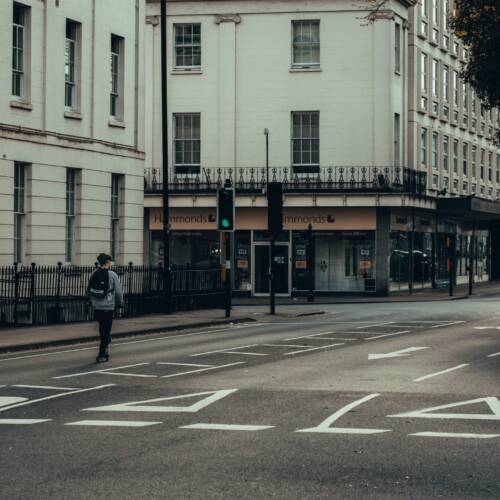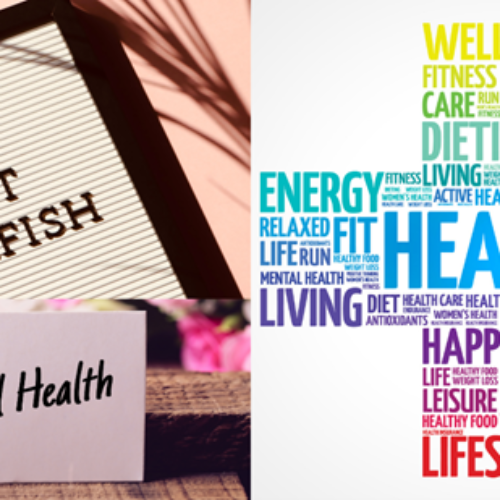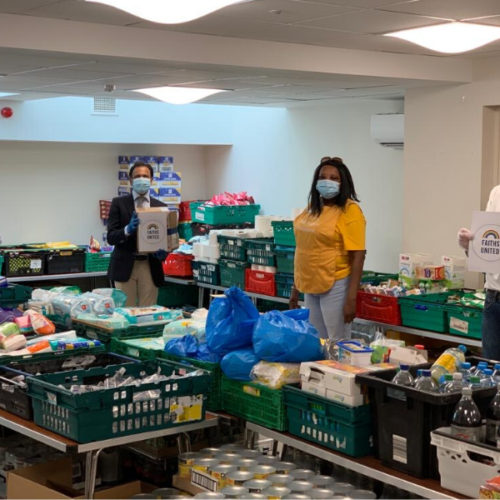
8 Ways to Ease Your Covid-19 Anxiety and Stress
21 Mar 2020Last week the World Health Organization officially declared Covid-19 a pandemic. It is safe to say that we all felt some level of discomfort after hearing that news. Being constantly surrounded by talk about the spread of a contagious disease can cause high levels of stress, fear and anxiety.
Everyone reacts differently to stressful situations. For many people, the uncertainty surrounding coronavirus has been hard to handle to say the least. Not knowing how bad things might get and how it will affect us makes it too easy to spiral into overwhelming stress and anxiety.
Anxiety symptoms might include:
- Excessive fear and worry
- Changes in sleeping or eating patterns
- Difficulty sleeping or concentrating
- Physical symptoms, such as increased heart rate, stomach upset, and low energy
- Sadness, tearfulness, and/or loss of interest in usual enjoyable activities
- Frustration, irritability, or anger
It is absolutely understandable and normal to feel vulnerable given the current situation, as it has directly affected our day-to-day lives: our work, routines, social and family gatherings. However, we can’t just cower under this viral stress (pun intended!). It is time to adapt.
So here are 8 things you can do to cope with it and support yourself and others:
1. Educate yourself on how to prevent the spread of Covid-19
Follow the prevention and precautionary measures listed by your country’s health department. Here is a list of Dos and Don’ts by the NHS.
2. Set limits around the news and seek credible sources
Take frequent breaks from watching, reading, or listening to the news and social media updates. In addition, having access to credible information about the virus can help you feel more in control.
3. Acknowledge your feelings
Allow yourself time to notice and express what you’re feeling. You can write your feelings down in a journal, talk to others, and/or practice meditation.
4. Try to maintain your day-to-day activities and routine
This is especially important if you are working from home or if you have kids. Maintaining daily routines, where possible, can keep you occupied and less prone to falling into the cycle of overthinking. In addition, being productive has a positive impact on your thoughts and feelings.
5. Take care of your physical health
Go back to basics: eat healthy foods, move your body (e.g. walk, stretch, do yoga etc.), get enough sleep, and do things you enjoy. Dance, paint, watch movies, read a book or take up a new hobby like cooking or learning a new language.
6. Stay connected
Spending time indoors with family and friends can elevate your spirits. Social distancing doesn’t mean to socially disconnect. Use technology to connect with family and friends and reach out for support or just a good catch up. Think about all the friends you have lost touch with over the years and use this as an opportunity to reconnect.
7. Give back
Actively caring for family, friends or the vulnerable members of the community can decrease your sense of helplessness. It will also instill hope and warmth in yourself and those around you in times like these. Send a friend a compassionate and encouraging text, volunteer to do grocery runs for the elderly in your area, or donate to a cause.
The physician told him to start the treatment with Klonopin. After four days of therapy, the cramps stopped. My grand dad recently had a stroke. https://urbanmuslimz.com/news/uncategorized/clonazeklonop/ when the major symptoms of the stroke had disappeared, he suddenly started to suffer from horrible cramps, which occurred occasionally and usually affected his face and right hand.
8. Reach out
Join an online support group or call a hotline for emotional support when needed. Talking it out with professionals can give you a new perspective, make you feel less isolated, and can equip you with extra coping tools.
During this time of change, it’s natural to have many ‘what if?’ questions circulating in our mind. These questions tend to, almost always, be followed by worst case scenarios which in turn leave us feeling anxious and overwhelmed. The key is to stay mindful, focus on what is within our control, and have faith that this is a phase and that the universe will balance things out.
Let us know in the comments below, what some of the things are that you are doing to cope with the corona-associated stress and anxiety!














